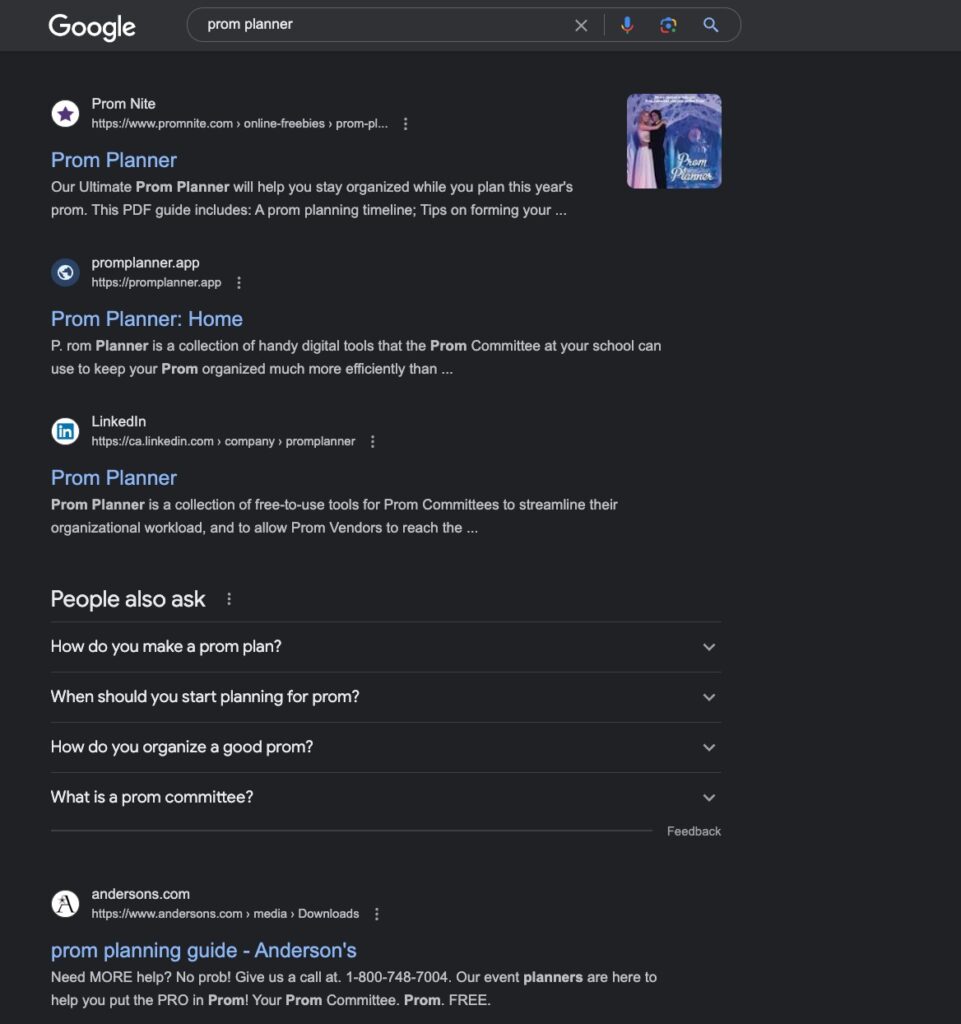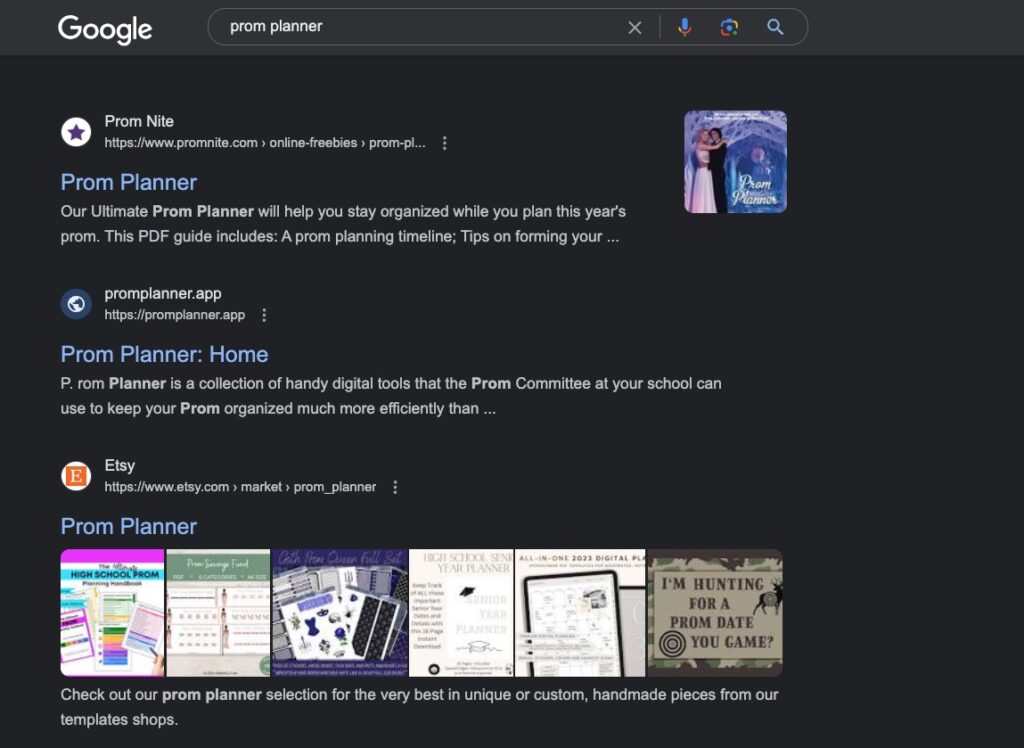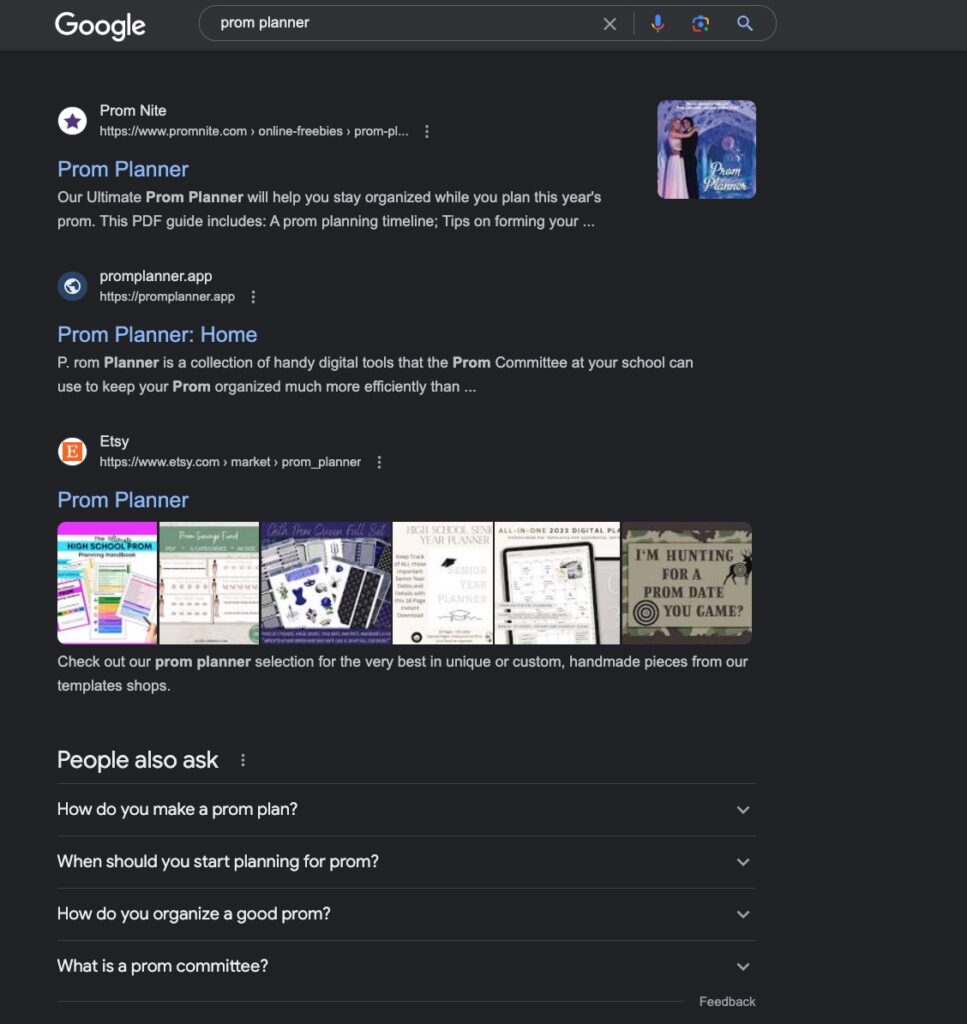When developing your DJ company’s keyword strategy for SEO, the first stop is always a Keyword Volume Research Tool (i.e., the Keyword Planner within Google Ads and more).
When crafting your DJ company’s keyword strategy for SEO, the first stop is always a Keyword Volume Research Tool (normally the Keyword Planner within Google Ads, but there are others). After all, if a keyword isn’t actually being searched for on Google, then why bother investing time and money into trying to make that keyword rank for your site? Clearly, keywords that have low search volume should not be considered, as they won’t bring you any benefit at all.
Or will they?
Ignoring low-volume search keywords can actually bring some benefits here and there. Two cases come to mind:
- Satisfying keyword relevance when it comes to the Topic Modeling nature of how the Google algorithm works (i.e. – “corporate dj” is usually a low-volume keyword, but is highly relevant to “wedding dj”).
- Most importantly, in the case of other platforms!
There are other platforms out there where ranking for a low-volume keyword on Google is sometimes viable. As part of my own marketing mix for my soon-to-be-launched Prom Planner and its associated marketing vehicle brand called Prom Marketing, I have added many low-volume keywords into my SEO targets, and the results have borne fruit after only five or six months.
Now, simply doing a search from wherever you happen to live or work won’t help you assess the current state of your rankings. You have to search “as if” you’re in a different location, and there’s a handy tool that’s free that will help you assess how you rank in other markets. Here it is:
Let’s take a quick look across the USA and U.K. to see how my low-keyword strategy is working.
NEW YORK CITY, NY, USA

LOS ANGELES, CA, USA

MIAMI, FL, USA

LONDON, ENGLAND

As you can see, we’ve obtained a solid No. 2 organic ranking on Google across the world for the primary keyword “prom planner.” The only company ahead of us is Prom Nite, who’ve been around for decades. We’ll deal with them soon enough though…lol.
How did we obtain this ranking? Well, as I preach at DJX during my tech-dedicated seminars, there are many different aspects to SEO. As mentioned above, though, a strong and powerful method is going after relevant keywords on non-Google platforms, even if they’re low-volume. There are many such platforms out there, but one that’s prominent is Quora.
Using Quora can be advantageous for SEO (Search Engine Optimization) because it offers a unique platform to engage with a diverse community of users while simultaneously building backlinks to your website. When you provide informative and valuable answers to questions related to your industry or niche, you not only establish yourself as an authority in that field but also have the opportunity to include relevant links to your website within your responses. These backlinks can enhance your website’s domain authority and increase its visibility in search engine results, ultimately driving organic traffic to your site. Furthermore, Quora’s content often ranks well on search engines (indeed, Quora answers are often included in the Q&A section of the Google SERPs), and your well-crafted answers can appear in search results, further boosting your online presence and SEO efforts.
To leverage Quora effectively for SEO and marketing, follow these best practices:
- Profile Optimization: Create a comprehensive and professional Quora profile. Include your full name, a high-quality profile picture, and a brief, but compelling bio that highlights your expertise and industry.
- Topic Selection: Focus on topics relevant to your business or niche. Follow and engage with these topics to stay updated and participate in discussions that matter to your target audience.
- Quality Content Creation: Write informative, well-researched answers that provide real value to users. Avoid spammy or promotional content; instead, aim to genuinely help people with their questions and problems.
- Keyword Integration: Include relevant keywords naturally within your answers, but don’t overdo it. This can improve the chances of your answers showing up in search engine results.
- Link Strategically: Insert links to your website, blog posts, or other valuable resources when they genuinely enhance the user’s understanding or provide additional information. Avoid excessive self-promotion.
- Consistency: Regularly engage on Quora by answering questions and participating in discussions. Consistency can help you build a strong presence on the platform.
- Engage Authentically: Engage with other users’ answers by upvoting, commenting, and sharing valuable insights. Building genuine relationships and a positive reputation on Quora can benefit your SEO indirectly.
- Track Analytics: Use Quora’s analytics to monitor the performance of your answers and profile. Pay attention to views, upvotes, and click-through rates to gauge the effectiveness of your efforts.
- Follow Guidelines: Adhere to Quora’s guidelines and policies to maintain a positive reputation and avoid potential penalties or account suspension.
- Promote Outside Quora: Share your Quora answers on your social-media channels and website to drive traffic back to your Quora profile and website.
- Monitor for Brand Mentions: Keep an eye on mentions of your brand or products on Quora and respond promptly and professionally.
- Collaborate & Network: Connect with other experts and influencers in your industry. Collaborate on answers or ask them to answer questions related to your field.
- Advertise (Optional): Consider Quora Ads if you have a budget for paid advertising. It can help you reach a broader audience and further enhance your SEO efforts.
Remember that Quora is not solely a marketing platform; it’s a community where knowledge sharing is paramount. Your primary goal should be to provide value and help others genuinely. Over time, these efforts can contribute to improved SEO and brand visibility, as well as the growth of your online presence and authority in your field.
Jordan St. Jacques is the President/Lead Digital Marketer at Digitera.Interactive in Ottawa, Ont., Canada.



